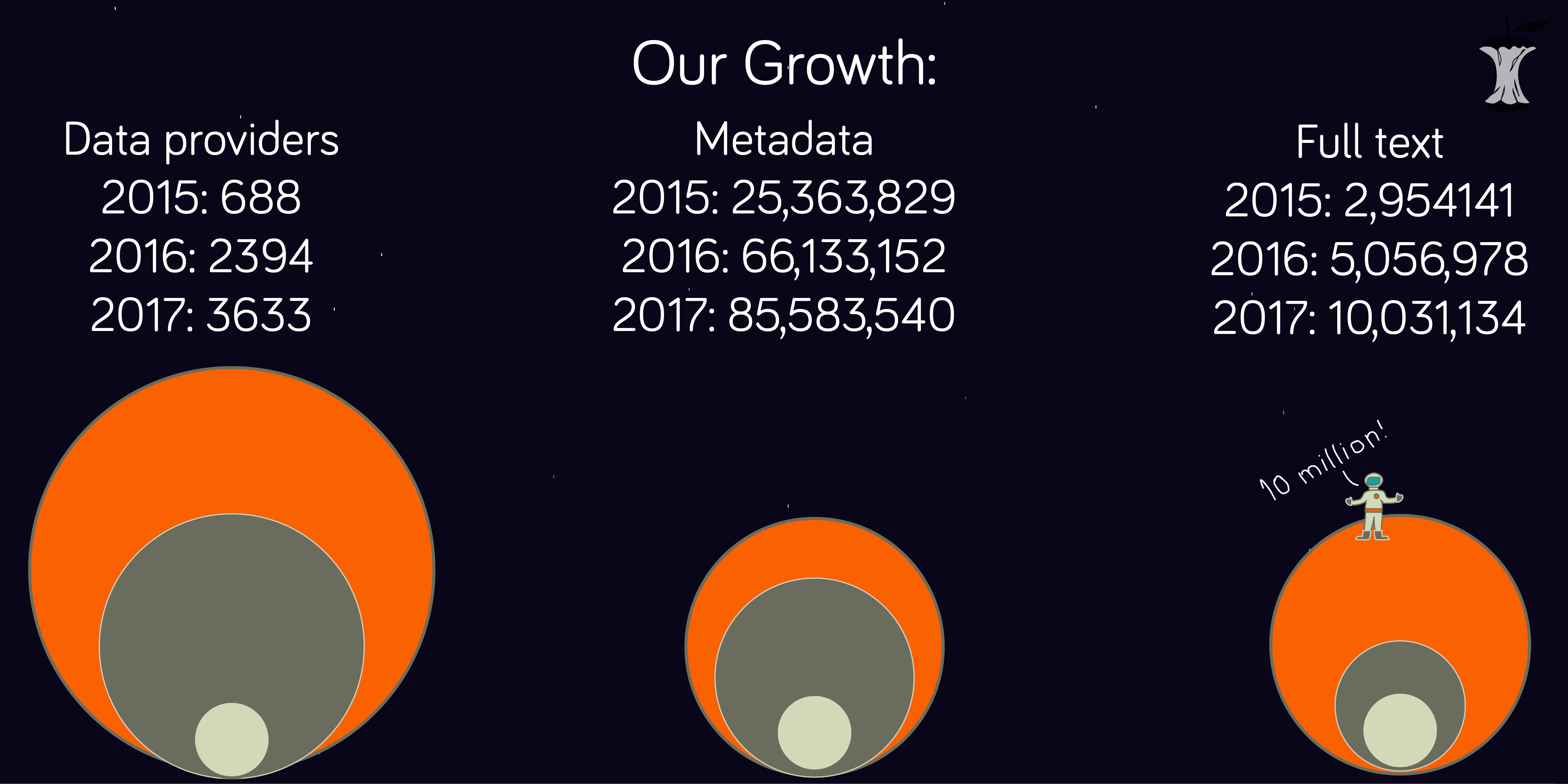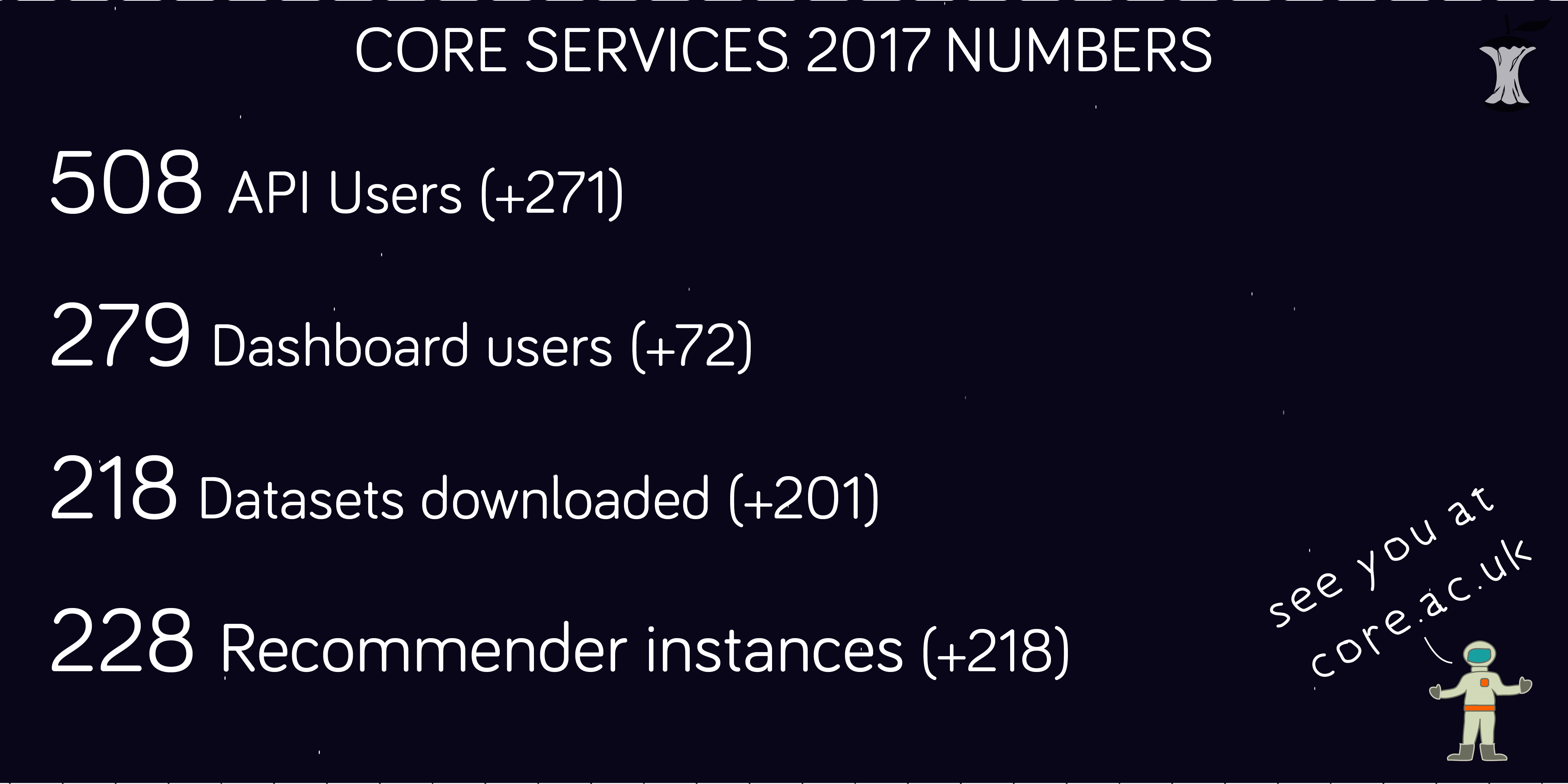This was another productive year for the CORE team; our content providers have increased, along with our metadata and full text records. This makes CORE the world’s largest open access aggregator. More specifically, over the last 3 months CORE had more than 25 million users, tripling our usage compared to 2017. According to Alexa CORE is now the 5,448th most used website globally. (Alexa rank is calculated from a combination of daily visitors and page views on a website over a 3-month period.) To put this into perspective, this shows that CORE is by far one of the most used Open Access Infrastructure services globally and its usage is higher than that of many large institutions.
Author: Matteo Cancellieri
CORE’s Open Access content has reached the Moon! (or how about them stats 2017 edition)
For yet another year (see previous years 2016, 2015) CORE has been really productive; the number of our content providers has increased and we have now more open access full text and metadata records than ever.
Our services are also growing steadily and we would like to thank the community for using the CORE API and CORE Datasets.
We also offer other services, such as the CORE Repositories Dashboard, CORE Publisher Connector and the CORE Recommender. We received great feedback with regards to the CORE Recommender, with George Macgregor, Institutional Repository Manager at Strathclyde University, reporting:
Analysing ORCID coverage across repositories through CORE
* This post was authored by Matteo Cancellieri, Petr Knoth and Nancy Pontika.
Last month, CORE attended the JISC ORCID hackday events in Birmingham and London. (ORCID is a non-profit organisation that aims to solve the author disambiguation problem by offering unique author identifiers). Following the discussions that sparked off at the two events, we decided to test the CORE data towards ORCID’s API and we discovered some information that we think is of interest to the scholarly community.


